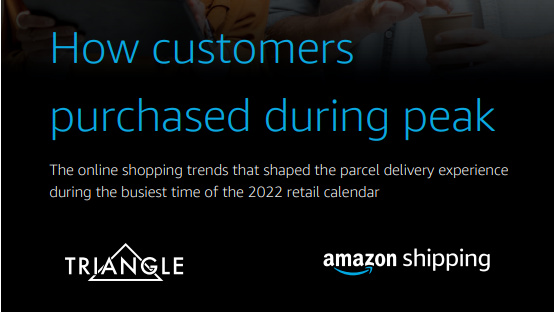Retailers should carry the can for online fraud
Online retailers should be held responsible for the safety of consumers shopping on their sites, according to a new survey.

One in four UK consumers puts the blame for online fraud firmly on the retailer.
Online payment firm CyberSource's sixth annual Online Fraud Report reveals that 24 per cent of shoppers believe it is the retailer's responsibility to ensure their safety, with only half as many saying the consumer themselves should be responsible.
Banks (16 per cent) and ISPs (12 per cent) were also singled out as not doing enough to prevent fraud, while a further 12 per cent blamed the Government or card reader schemes.
"Consumers say they feel retailers are primarily accountable for making online shopping safer," said CyberSource managing director Simon Stokes. "But consumers themselves have a role in this effort, and they should be encouraged to play it."
Encouragingly though, of the 1,000-plus consumers questioned in the survey, 85 per cent said they looked for signs that a site was secure such as the green address bar before handing over their personal details.
More than two thirds said they used 3D Secure systems Verified by Visa and MasterCard SecureCode, and a quarter card readers.
However, despite these measures half of UK consumers still do not buy online, a figure that has only dropped slightly since 2007. The most common reason given was a preference for the "high street experience", though 41 per cent also said they were concerned about online security.
Get the ITPro daily newsletter
Sign up today and you will receive a free copy of our Future Focus 2025 report - the leading guidance on AI, cybersecurity and other IT challenges as per 700+ senior executives
Even among those who do regularly shop online, trust remains an issue in fact, more than ever. Of the total sample, the number of consumers who said they were concerned about the level of risk involved actually increased from 66 per cent last year to 71 per cent this time around.
And mistrust of mobile phone-based payments is even higher. Three our of every four questioned said they would never use a mobile phone for online shopping, with. Indeed, Stokes claimed that until mobile payment services were better understood the public was unlikely to embrace them wholesale.
"Mobile payments mean different things to different people both merchants and consumers," Stokes said. "This may have contributed to a lack of understanding about the whole area. It will be interesting to see how consumer perceptions evolve as we move out of the early adopter phase and mobile payments become more mainstream."
Stokes added: "The introduction of new smartphone devices and technologies should also help to drive consumer acceptance."
-
 Cleo attack victim list grows as Hertz confirms customer data stolen
Cleo attack victim list grows as Hertz confirms customer data stolenNews Hertz has confirmed it suffered a data breach as a result of the Cleo zero-day vulnerability in late 2024, with the car rental giant warning that customer data was stolen.
By Ross Kelly
-
 Lateral moves in tech: Why leaders should support employee mobility
Lateral moves in tech: Why leaders should support employee mobilityIn-depth Encouraging staff to switch roles can have long-term benefits for skills in the tech sector
By Keri Allan
-
 Preparing for peak: How customers purchased during peak
Preparing for peak: How customers purchased during peakwhitepaper The online shopping trends that shaped the parcel delivery experience during the busiest time of the 2022 calendar
By ITPro
-
 How Crew Clothing went mobile to turn around a struggling business
How Crew Clothing went mobile to turn around a struggling businessCase Study Mobile sales tech unleashed a tide of change, buoying further growth across the UK coast-inspired casualwear chain
By Fleur Doidge
-
 Going contactless with shoppers in a post-COVID world
Going contactless with shoppers in a post-COVID worldWhitepaper Retail guide
By ITPro
-
 Leanpath’s new tools help reduce food waste and costs
Leanpath’s new tools help reduce food waste and costsNews Impact Suite uses automated action plans to help kitchens address food waste issues
By David Gargaro
-
 How web retailers cope with the demands of the holiday season
How web retailers cope with the demands of the holiday seasonIn-depth Christmas, New Years, Boxing Day, January sales… How can web retailers meet the demands of seasonal peaks in sales?
By Ingrid Fadelli
-
 Retailers start Black Friday early to avoid system outages
Retailers start Black Friday early to avoid system outagesNews Many online retailers have learnt from the mistakes of last year by launching sales weeks or even months early
By Clare Hopping
-
 Amazon's drone delivery might track customer location info
Amazon's drone delivery might track customer location infoNews The service will use a person's smartphone data to find them and deliver even if they are not in a static location
By Clare Hopping
-
 Cook deploys Qlik to track Christmas sales
Cook deploys Qlik to track Christmas salesNews Homemade food retailer uses visual analytics to react faster to customer demand
By Joe Curtis